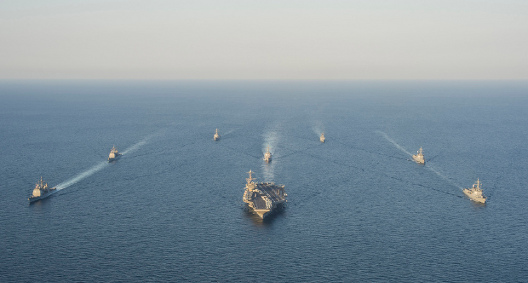
Asking Hard Questions and Supporting Tough Decisions
As China modernizes its armed forces, the United States’ huge advantage in military technology is eroding – and US policymakers cannot realistically hope to reverse that change with increased spending, according to Roger Cliff, an Atlantic Council specialist on East Asian security. To maintain US military’s edge over China, policymakers must build solutions based on lower spending levels, in which the quality of weaponry is more important than quantity, and software is more important than hardware, Cliff argues today in testimony before a congressional study group – the US-China Economic and Security Review Commission.
![]() Download Roger Cliff’s Prepared Testimony
Download Roger Cliff’s Prepared Testimony
The true US advantage comes “not from our high-tech weaponry but from the organization, people, training, and culture” of the American military, Cliff wrote in his statement for the commission, which is mandated by Congress to report annually on the national security implications of US-China economic relationship. This personnel gap between the military forces is waning too, Cliff says, and getting America’s best and brightest into the US military will be key to confronting the potential challenges of a rising China.
Cliff, a non-resident senior fellow at the Atlantic Council’s Brent Scowcroft Center for International Security, outlined in his testimony where and how China might use its military capabilities in a conflict with the United States, and how the United States ought to respond to Chinese military modernization. The US government should take steps to ensure that its forces maintain the capability to prevail in the event of a conflict with China.
Cliff’s testimony urges Congress to ask our military leaders hard questions about what force structures and acquisitions are truly necessary for the missions of the future, and says military leaders must be honest about what can and should be cut. Then, Cliff implores, Congress must support the tough decisions that military leaders ask be made. Cutting forces and aquisition programs is not without costs which may fall more heavily on some areas than others, says Cliff, citing that his home state of North Carolina could “be significantly impacted by a major reprioritization of defense spending.” However, Cliff argues, the primary purpose of national defense is to protect the interests of the nation as a whole, not to support particular and individual communities and businesses
Catherine Putz is a digial communications assistant at the Atlantic Council.
Image: The George Washington Carrier Strike Group and Republic of Korea navy ships participate in tactical maneuver training in waters to the West of the Korean Peninsula. October 2013 (Photo: US Navy/Public Domain)
